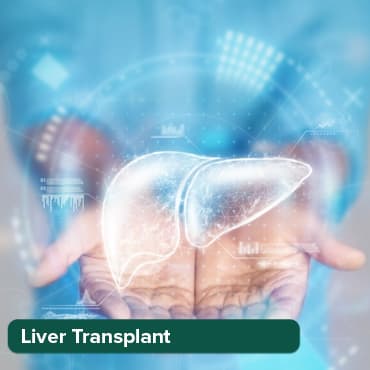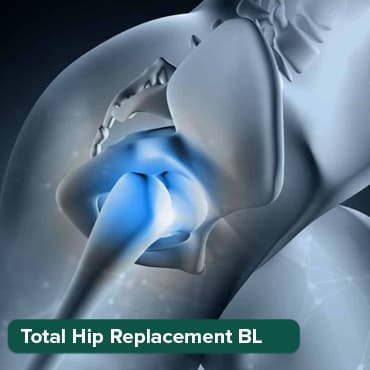
Bariatric Surgery: Understanding the Recovery Process
21 Apr, 2023
Bariatric surgery, also known as weight loss surgery, is a surgical procedure performed on individuals with severe obesity. The goal of the surgery is to help patients lose weight by reducing the size of their stomach or bypassing a portion of the small intestine. While bariatric surgery is an effective treatment for obesity, it requires a significant recovery process that patients need to understand and follow to achieve the best outcomes. In this blog, we will discuss the recovery process after bariatric surgery, including the timeline, dietary restrictions, and physical activity.
Timeline of Recovery:
Transform Your Beauty, Boost Your Confidence
Find the right cosmetic procedure for your needs.

We specialize in a wide range of cosmetic procedures

- The recovery process after bariatric surgery varies from person to person and depends on the type of surgery performed. In general, patients are required to stay in the hospital for one to two days after the surgery. During this time, they are closely monitored by the medical staff to ensure that there are no complications.
- Once patients are discharged from the hospital, they are advised to take a few weeks off from work or school to recover. During this time, patients should expect to feel tired and sore, and they should avoid any strenuous activity.
- After two weeks, patients can start a gradual return to normal activities, including light exercise. However, they should continue to avoid heavy lifting or strenuous exercise for at least six weeks.
Dietary Restrictions:
Following bariatric surgery, patients are required to follow a strict diet to ensure that they do not experience any complications and promote healing. The diet will be divided into four stages, and patients will progress to each stage as their body adjusts to the surgery.
- Stage 1: Clear Liquids - During the first week after surgery, patients are only allowed to consume clear liquids such as water, broth, and sugar-free Jello.
- Stage 2: Full Liquids - During the second week, patients can consume full liquids such as protein shakes, low-fat milk, and low-fat yoghurts.
- Stage 3: Pureed Foods - During the third week, patients can start consuming pureed foods such as mashed potatoes, scrambled eggs, and pureed fruits and vegetables.
- Stage 4: Solid Foods - After four weeks, patients can start consuming solid foods, but they should still avoid foods that are high in fat, sugar, and calories.
It is important for patients to follow their dietitian's recommendations and avoid overeating or consuming foods that may cause discomfort or complications.
Physical Activity:
- Physical activity is an essential part of the recovery process after bariatric surgery. It can help patients lose weight, improve their overall health, and prevent complications such as blood clots and pneumonia.
- However, patients should not engage in strenuous activity for at least six weeks after surgery. Instead, they should start with light activity such as walking and gradually increase the intensity and duration of their exercise routine.
- Patients should also avoid lifting heavy objects and performing activities that strain the abdominal muscles, such as crunches and sit-ups. It is important for patients to discuss their physical activity plans with their surgeon or primary care physician before starting any exercise routine.
Complications:
- While bariatric surgery is a safe and effective treatment for obesity, there are potential complications that patients should be aware of. These complications can include bleeding, infection, blood clots, and leaks from the surgical site.
- Patients should be vigilant about monitoring their symptoms and report any signs of complications to their healthcare provider immediately. Symptoms that may indicate a complication include fever, severe pain, difficulty breathing, and signs of infection such as redness or swelling.
Conclusion:
Most popular procedures in India
Atrial septal defect
Upto 80% off
90% Rated
Satisfactory

Coronary Angiogram a
Upto 80% off
90% Rated
Satisfactory

Coronary Angiogram C
Upto 80% off
90% Rated
Satisfactory

Liver Transplant
Upto 80% off
90% Rated
Satisfactory

Total Hip Replacemen
Upto 80% off
90% Rated
Satisfactory

Bariatric surgery is a life-changing procedure that can help patients achieve significant weight loss and improve their overall health. However, it requires a significant recovery process that patients must follow to achieve the best outcomes. Patients should be prepared for a gradual return to normal activities and follow their dietary and physical activity restrictions as advised by their healthcare team. Patients should also be aware of potential complications and report any symptoms to their healthcare provider immediately.
In addition to physical recovery, patients may also experience emotional and psychological changes after bariatric surgery. It is common for patients to feel overwhelmed or anxious about their new lifestyle changes and the possibility of regaining weight.To address these concerns, patients may benefit from support groups or counselling to help them adjust to their new lifestyle and cope with any emotional or psychological challenges.
Wellness Treatment
Give yourself the time to relax
Lowest Prices Guaranteed!

Lowest Prices Guaranteed!





